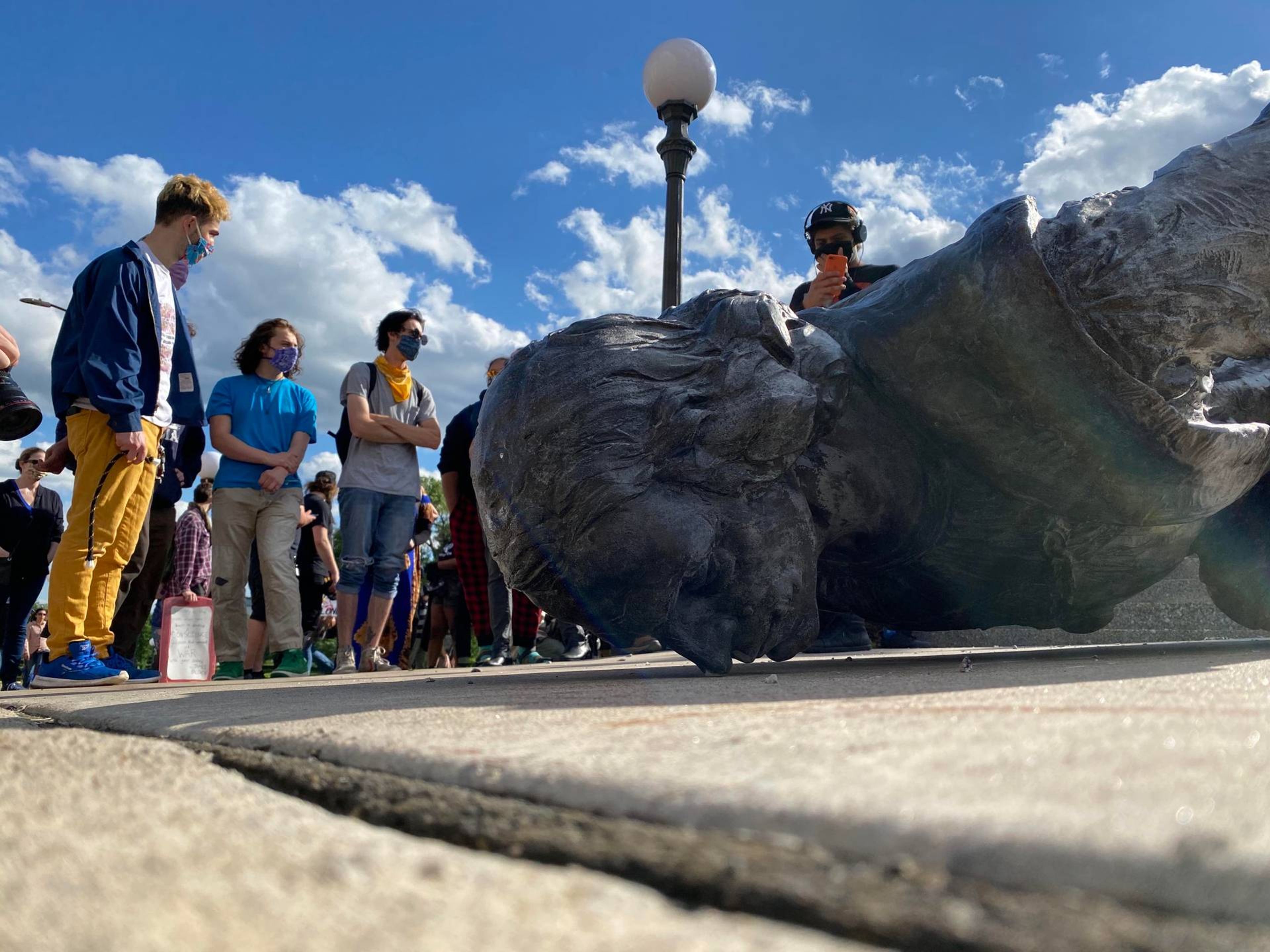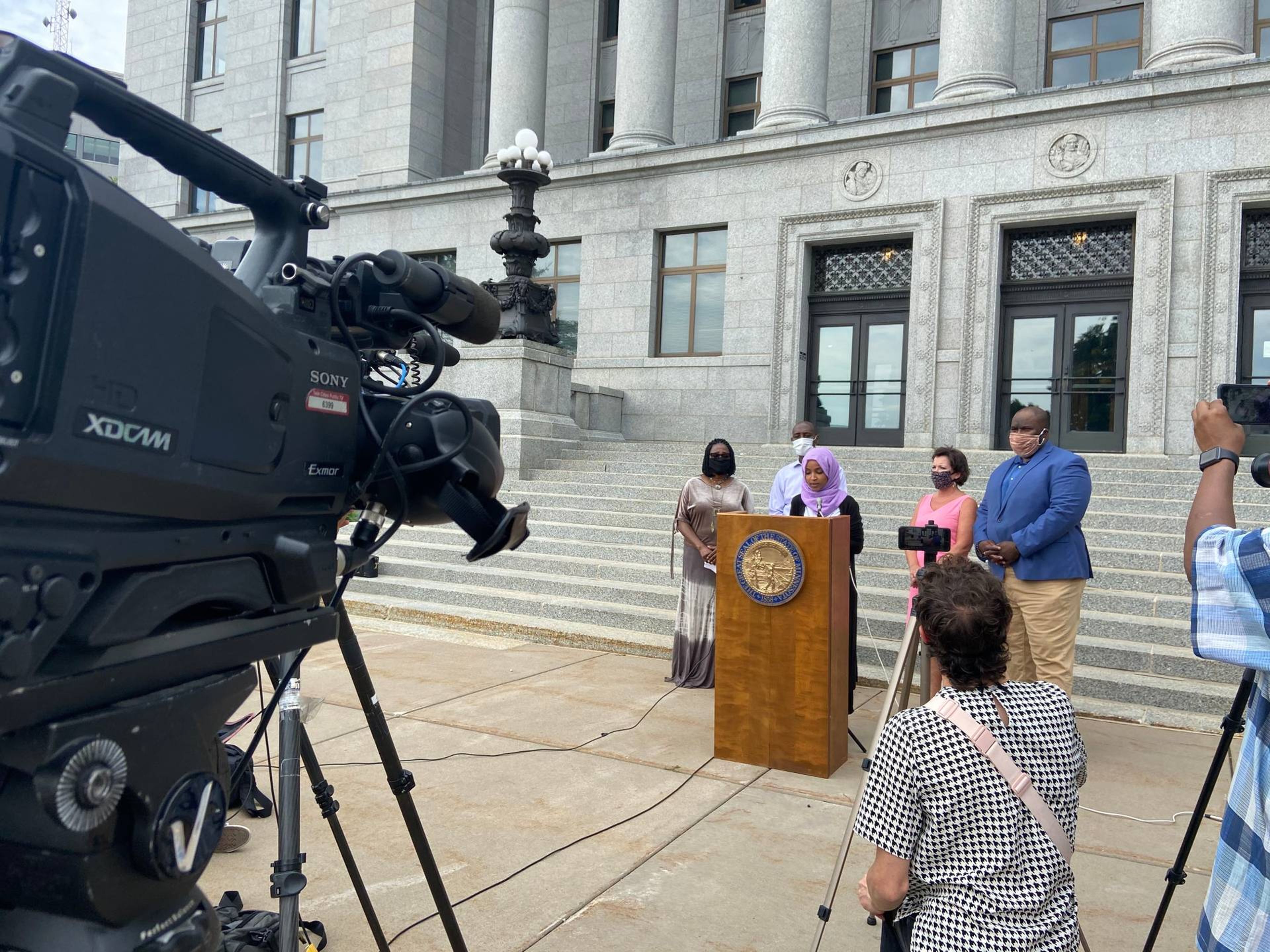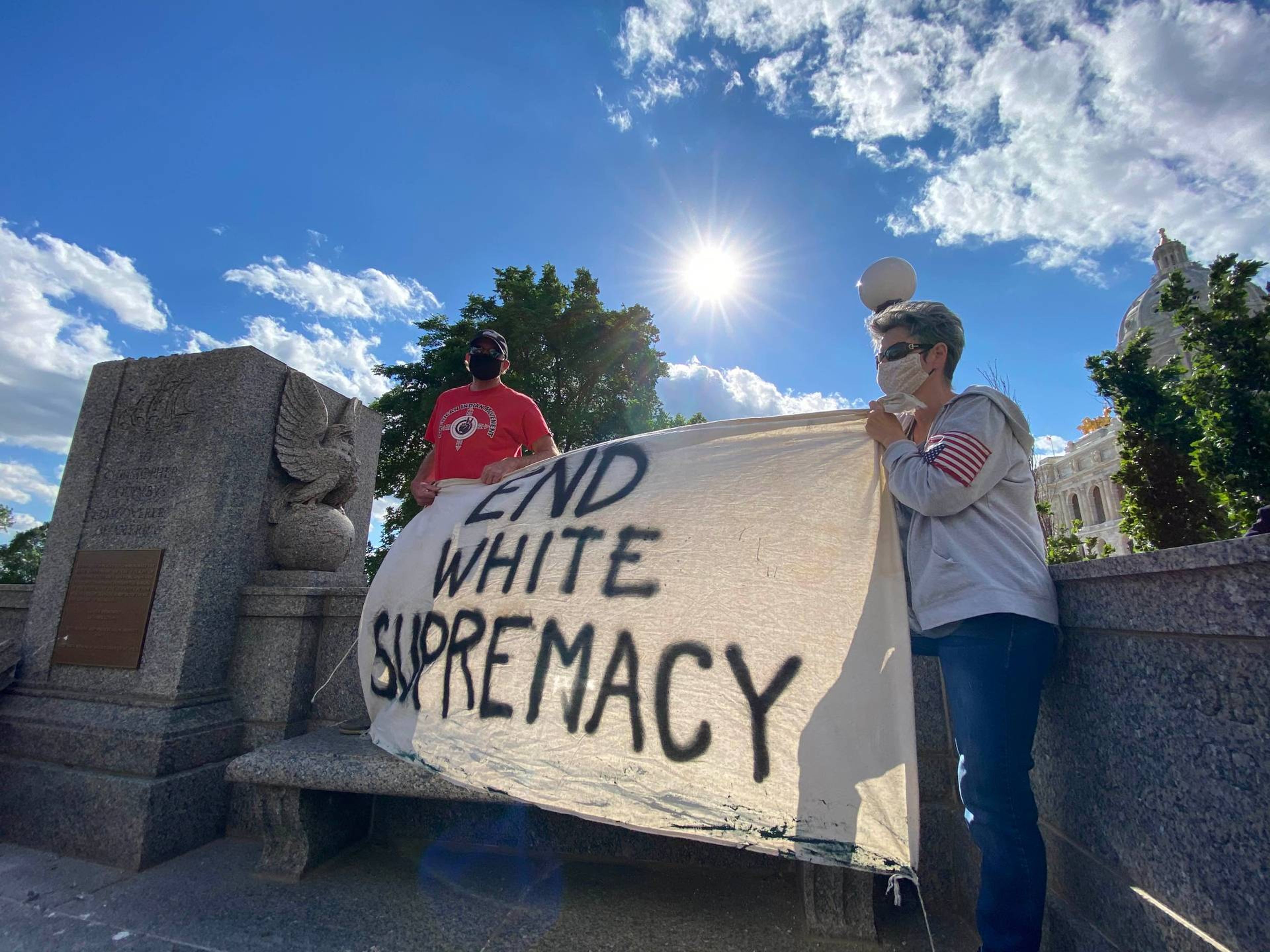Police Reform Is a Focus in a Second Special Legislative Session
Officially, the second session is triggered by the Governor's extension of a state of emergency due to COVID-19, but police reform also promises to be a top topic.
Story published: July 13,2020
Heading into another special session of the Minnesota Legislature, Senate Republicans focused on Capitol security, including the toppling of the Christopher Columbus statue on the mall, credible threats to burn the Capitol and the aftermath of protests following the police killing of George Floyd in a tense hearing. Colonel Matthew Langer, head of the Minnesota State Patrol, said he understood some of the criticism that his forces didn't stop the removal of the statue, but added, "This was volatile situation, which had the potential to become extremely ugly."

Sen. Warren Limmer (R-Maple Grove) complained, "It actually appeared that we were tolerating some degree of lawlessness." Sen. John Jasinski (R-Faribault) said it makes both him and his constituents angry - and they think bigger decisions were behind the lack of interference from law enforcement, an accusation that authorities have denied. Yet, he concluded, "Something happened that day to get [law enforcement] to stand down.”

DFL Gov. Tim Walz called lawmakers back for a second special session on Monday, July 13 to officially meet again, as talks continued over the appropriate response to international reaction to what happened in Minnesota to George Floyd, who died in Minneapolis Police custody. U.S. Rep Ilhan Omar (D-MN 5th District) returned to the State Capitol to stand with her former colleagues from the People of Color and Indigenous Caucus to call for action on police reform. Senator Jeff Hayden (DFL-Minneapolis), the only person of color on a top leadership team in the legislature, said he’s disappointed that Senate Republicans are having hearings on the violence following Floyd’s murder instead of addressing the root causes.

Following the last special session that crumbled without action on police reform, Senate Majority Leader Paul Gazelka thought some time to cool off could bring about compromise. Sen Hayden responded that, "Time hasn’t helped. Time would help if they had a conversation. But they lack the communication skills, which doesn't make any sense because he sits in front of [the media] every week and has a conversation with [the media]. So clearly Senator Gazelka and others that are here at this capitol have great communication skills. They just choose not to talk to us."
George Floyd’s police killing has inspired countless artists across the globe to create murals in his honor, works that also call for justice and anti-racism reform. And that’s left a lot of people wondering what will happen to the works of art – many created on temporary surfaces such as plywood panels – when communities start to rebuild. Students and professors at the University of Minnesota have created an online database that aims to catalog these expressions so they can be studied for years to come.
George Floyd’s police killing has brought together communities in a show of resilience – but it’s also revealed deep-seated racial inequities in access to healthy food now that the Lake Street area, where many grocery stores were damaged or destroyed, has become a food desert. Almanac reporter Kyeland Jackson examines how that lack of food access is actually rooted in racism-charged issues related to access to jobs and opportunities to build wealth.
In 2019, Taylor Kueng (who identifies as gender non-binary) witnessed the arrest of two Black men in downtown Minneapolis. Taylor and their friend filmed the incident until they were both also arrested by police. One year later, a different video implicated their brother, former officer Alex Kueng, in the police killing of George Floyd. Discover how one family has been impacted by two different videos that captured police force.
